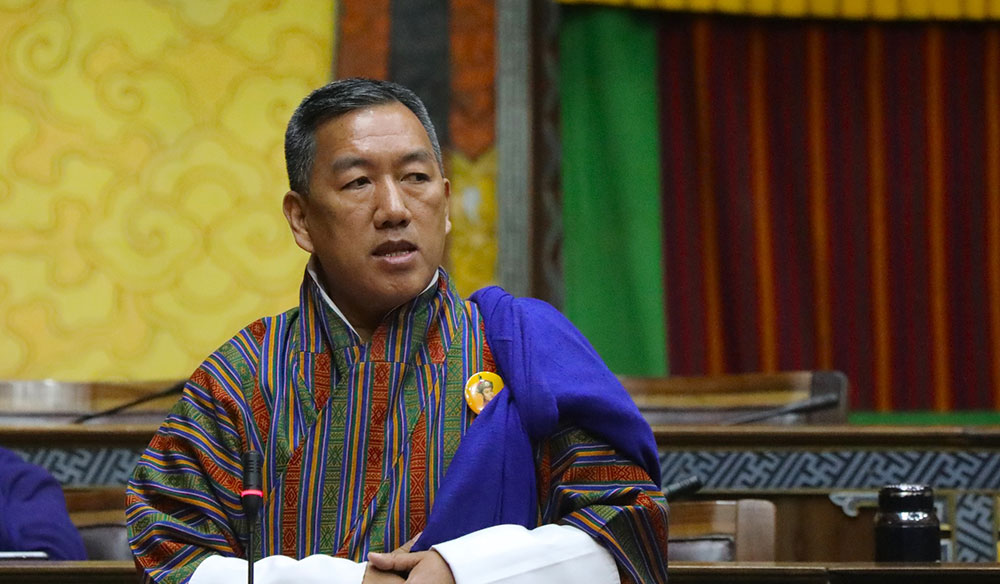Thinley Namgay
During the ongoing National Assembly (NA) session, the opposition leader (OL), Dorji Wangdi, called for maximising the benefits to Bhutan from the agreement on the movement of traffic-in-transit between Bhutan and Bangladesh.
Raising concerns, the OL emphasised that the government should strive to fulfil this mandate, considering the country’s current challenges.
Among the 20 articles of the agreement, the OL expressed reservations about articles 3, 15, and 17, pointing out that they could be interpreted as allowing vehicles from Bangladesh to enter Bhutan.
Article 3 states, “The contracting parties shall provide, within their capacity, the freedom of traffic-in-transit through their territory via the routes most convenient for international transit.”
According to the OL, the agreement permits Bangladesh to export its goods to or import from a third country by using Bhutan as a transit destination. “The government should thoroughly study the implications of this provision.”
However, Prime Minister Dr Lotay Tshering and Minister of Industry, Commerce, and Employment, Karma Dorji, clarified that vehicles carrying goods from
Bangladesh are not allowed to cross beyond eight designated entry points in Bhutan.
Both the Prime Minister and Lyonpo Karma Dorji explained that the likelihood of Bangladesh exporting or importing through Bhutan as a transit point is minimal, considering the associated costs. “This provision would primarily benefit Bhutan, where we could import goods from third countries through Bangladesh, in addition to our existing route through the Kolkata port.”
Nevertheless, the OL said that if the agreement permits, Bhutan could become a transit point in the future.
In response to a query from Drametse-Ngatshang’s MP Ugyen Wangdi, the PM emphasised that given Bangladesh’s proximity to India, there should be no concern about Bangladesh exporting to India via Bhutan’s entry points.
PM highlighted that Bangladesh shares a 5,000km border with India, making it more convenient for Bangladesh to engage in exports or imports through its border states rather than routing them through Bhutan.
As per the agreement, Bangladesh is only allowed to conduct third-country exports or imports through the Paro and Gelephu airports. “For this purpose, we would need to sign separate agreements,” said Lyonpo Karma Dorji, adding that Bhutanese vehicles can freely travel within Bangladesh.
Recognising the importance of the agreement, MP Hemant Gurung from Lhamoizingkha-Tashiding requested the government to explore the feasibility of in-land waterway transportation between Lhamoizingkha and Barabisa in India. Barabisa is located 30 km from Lhamoizingkha.
PM acknowledged that some provisions of the agreement might need revision in the future depending on the prevailing circumstances.
The NA on June 13 unanimously ratified both the agreement and protocol on movement of traffic in transit between the two countries. All 44 members present voted in favour.


